
Blogs
How AI Agents are transforming Healthcare: Enhancing Patient Care and Operational Efficiency
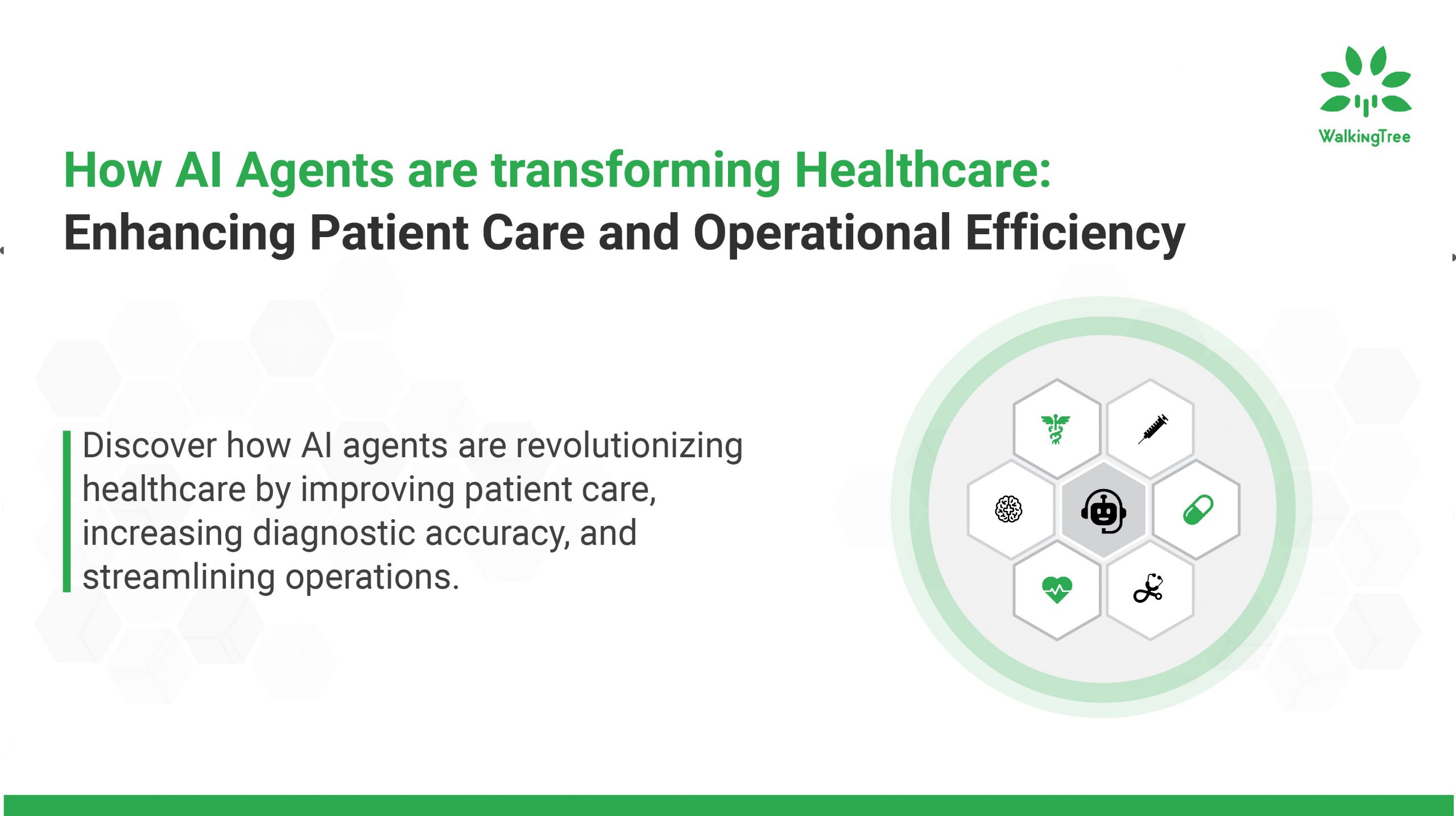
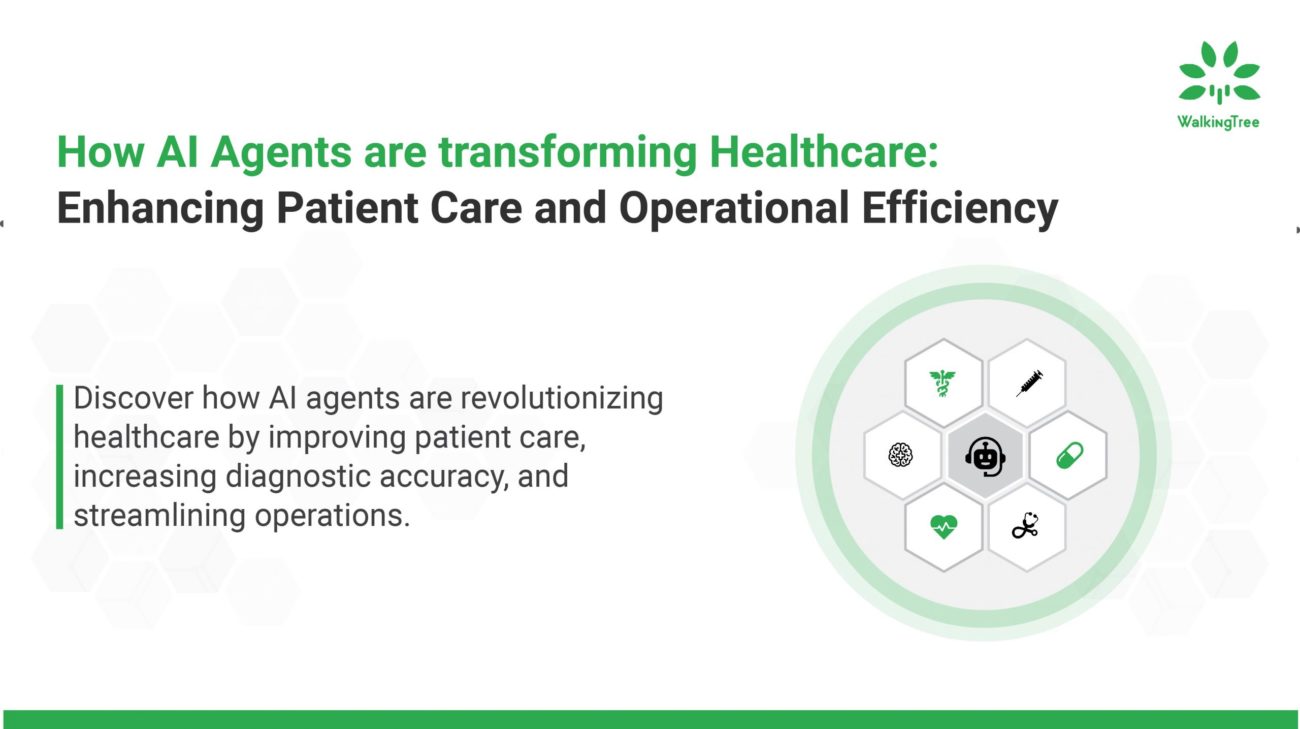 The healthcare industry is facing mounting challenges, from operational inefficiencies to diagnostic inaccuracies and suboptimal patient outcomes. AI is becoming essential in healthcare, offering solutions that enhance efficiency, accuracy, and patient care. According to a recent study, AI has the potential to create $150 billion in annual savings for the U.S. healthcare economy by 2026. This significant impact is driven by the adoption of AI Agents in Healthcare that streamline operations, enhance diagnostic accuracy, and improve patient outcomes.
The healthcare industry is facing mounting challenges, from operational inefficiencies to diagnostic inaccuracies and suboptimal patient outcomes. AI is becoming essential in healthcare, offering solutions that enhance efficiency, accuracy, and patient care. According to a recent study, AI has the potential to create $150 billion in annual savings for the U.S. healthcare economy by 2026. This significant impact is driven by the adoption of AI Agents in Healthcare that streamline operations, enhance diagnostic accuracy, and improve patient outcomes.
Artificial Intelligence (AI) has become a cornerstone of innovation across various industries, and healthcare is no exception. AI agents in healthcare are revolutionizing the way medical services are delivered, enhancing patient care, and streamlining operational efficiency. This blog delves into the profound impact AI agents are having on the healthcare industry, addressing key pain points, showcasing industry statistics, and exploring the latest trends of 2024.
|The Business Case for AI Agents in Healthcare
The decision to invest in AI agents is not just about technological advancement; it’s about securing a competitive edge. Here’s why:
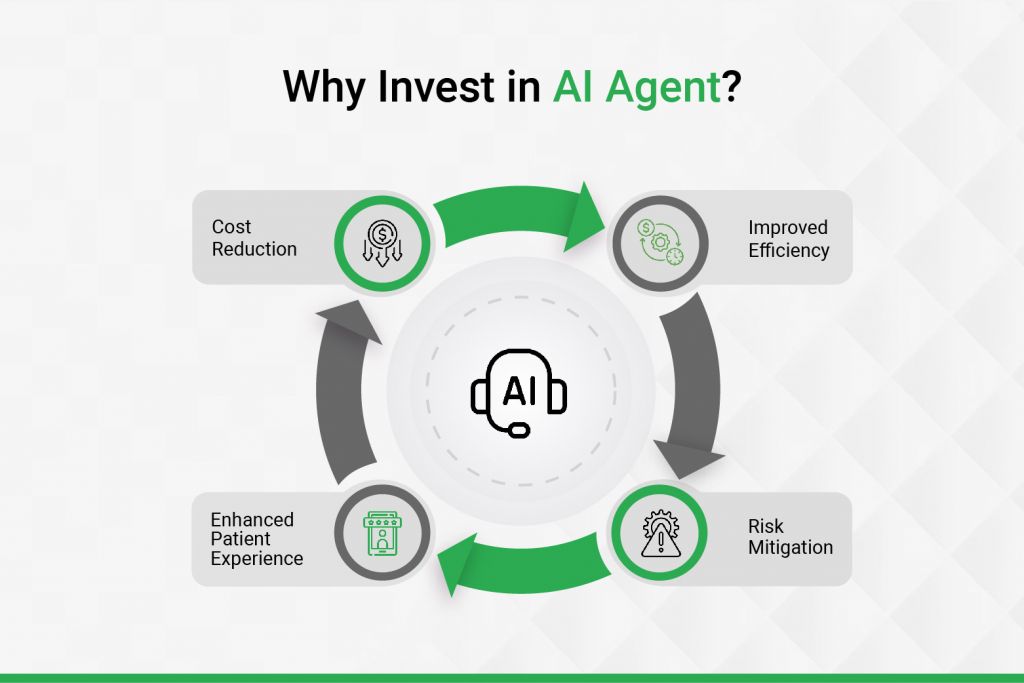
Cost Reduction: AI agents can significantly reduce operational costs by automating mundane tasks, such as appointment scheduling, medical record management, and insurance claims processing. A recent study by McKinsey estimated that AI could save the U.S. healthcare industry up to $100 billion annually.
- Improved Efficiency: By streamlining workflows and reducing administrative burdens, AI agents free up healthcare professionals to focus on patient care. This leads to increased productivity and better patient outcomes.
- Enhanced Patient Experience: AI-powered chatbots and virtual assistants can provide patients with 24/7 access to information, answer queries, and even offer personalized health advice. This improves patient satisfaction and loyalty.
- Risk Mitigation: AI agents can help identify potential risks and anomalies in patient data, enabling early intervention and preventing adverse events.
|Building AI Agents in Healthcare
Developing AI agents in healthcare is a complex endeavor that requires a deep understanding of both the healthcare industry and AI technology. Here are some key considerations:
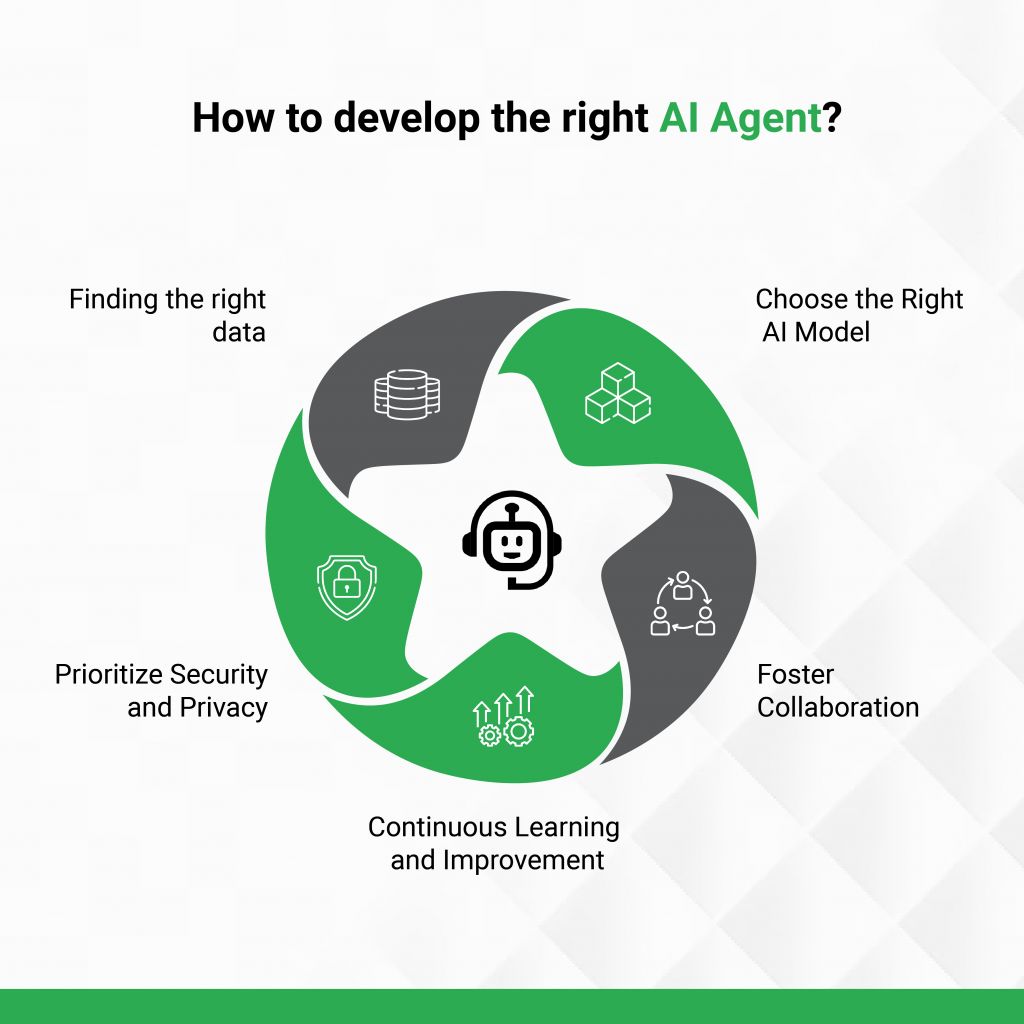
- Finding the right data: Making use of Vector Database for efficient storage and retrieval of the required data will ensure the agent has access to the right information as needed through strategically implemented Agentic RAG approach.
- Choose the Right AI Model: The choice of AI model depends on the specific use case. For example, natural language processing (NLP) is crucial for chatbots, while machine learning is essential for predictive analytics.
- Prioritize Security and Privacy: Healthcare data are highly sensitive, and protecting patient information is paramount. AI agents must adhere to strict security and privacy regulations.
- Foster Collaboration: Building an AI agent requires a multidisciplinary team, including data scientists, engineers, healthcare professionals, and domain experts. Effective collaboration is essential for success.
- Continuous Learning and Improvement: AI is not a one-time project. AI agents must be continuously trained and updated to adapt to changes in the healthcare landscape.
|Addressing Key Pain Points with AI Agents
Data Overload and Management
Healthcare systems generate enormous amounts of data daily, from patient records to medical images. Managing and extracting meaningful insights from this data can be overwhelming. AI agents can analyze complex datasets rapidly, providing healthcare professionals with actionable insights. For example, AI-driven predictive analytics can identify patterns in patient data, helping to forecast disease outbreaks and patient admissions. The average hospital generates approximately 50 petabytes of data annually, yet less than 10% of this data is effectively utilized for decision-making.
Operational Inefficiencies
Administrative tasks such as scheduling, billing, and patient follow-ups consume significant time and resources. AI agents automate these routine tasks, allowing healthcare staff to focus on patient care. Intelligent chatbots can handle patient inquiries and appointment scheduling, while AI-driven billing systems ensure accurate and timely processing of insurance claims. The U.S. healthcare industry will be up to $150 billion annually by 2026 through efficiencies in clinical and administrative tasks.
Diagnostic Accuracy and Speed
Diagnostic errors can have severe consequences for patient health and safety. AI agents enhance diagnostic accuracy by analyzing medical images, lab results, and patient histories with higher precision and speed than human capabilities alone. This results in faster and more accurate diagnoses, improving patient outcomes and reducing the likelihood of misdiagnoses. The Journal of the American Medical Association reports that AI can improve diagnostic accuracy by up to 20%, significantly reducing the rate of misdiagnosis.
Patient Monitoring and Personalized Care
A report by Frost & Sullivan indicates that AI-powered remote patient monitoring systems can reduce hospital readmission rates by up to 40%. Continuous patient monitoring and personalized care are critical for managing chronic conditions and improving patient outcomes. AI agents monitor patient vital signs in real time, detect anomalies, and alert healthcare providers promptly. They also facilitate personalized treatment plans based on individual patient data, ensuring more effective and tailored care.
Enhancing Patient Experience
A survey by Deloitte found that 62% of patients are comfortable interacting with AI agents health assistants for basic inquiries and follow-ups. Patient satisfaction is a key metric for healthcare providers. AI agents in healthcare improves patient experience by offering 24/7 support through virtual health assistants, providing timely information, and simplifying the patient journey. These agents can answer questions, provide medication reminders, and even offer mental health support, all of which contribute to higher patient satisfaction.
|Latest Trends in AI Agents for Healthcare in 2024
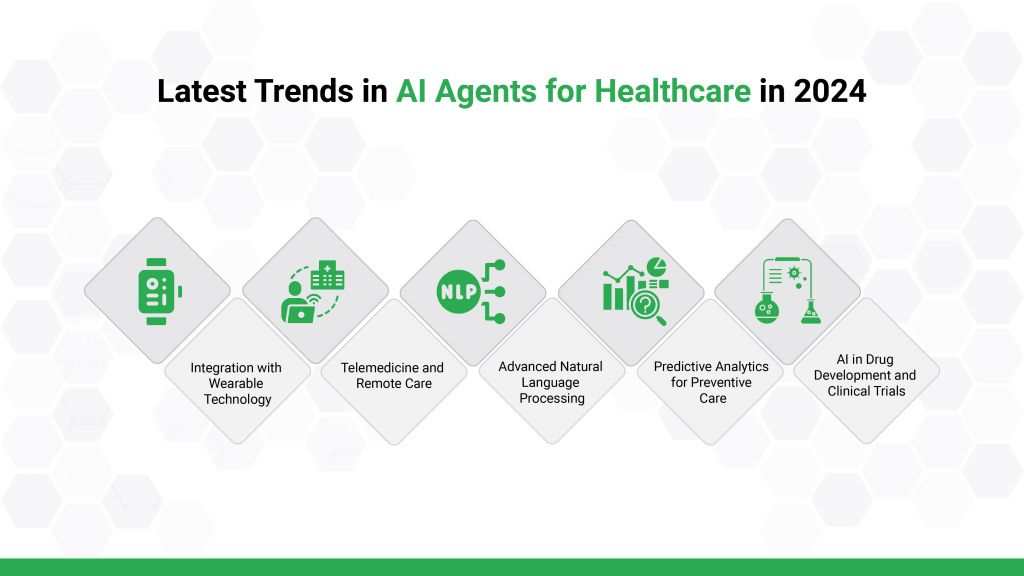
Integration with Wearable Technology
Wearable devices that monitor health metrics such as heart rate, blood pressure, and glucose levels are becoming increasingly popular. AI agents integrate with these devices to provide continuous health monitoring and real-time feedback, helping patients manage their health more effectively.
Telemedicine and Remote Care
The adoption of telemedicine has surged, driven by the need for remote healthcare services. AI agents play a crucial role in telemedicine by facilitating virtual consultations, triaging patients, and providing remote diagnostics. This ensures that patients receive timely care, regardless of their location.
Advanced Natural Language Processing (NLP)
NLP advancements enable AI agents to understand and respond to complex medical queries, process unstructured data from medical records, and even assist in clinical documentation. This improves the efficiency of healthcare providers and enhances the accuracy of patient records.
Predictive Analytics for Preventive Care
Predictive analytics powered by AI agents help identify potential health risks and prevent diseases before they occur. By analyzing historical patient data and current health metrics, AI can predict the likelihood of conditions such as heart disease or diabetes, allowing for early intervention and preventive care.
AI in Drug Development and Clinical Trials
AI agents are accelerating drug discovery and development by analyzing vast datasets to identify potential drug candidates and predict their efficacy. In clinical trials, AI helps in patient recruitment, monitoring, and data analysis, speeding up the trial process and improving outcomes.
|Use Cases: AI Agents in Healthcare
Enhancing Diagnostic
Accuracy Integrating AI agents into diagnostic processes, particularly in radiology, can significantly improve diagnostic accuracy and speed. By using AI to analyze medical images, healthcare facilities can achieve better patient outcomes and more efficient use of radiologists’ time. This allows for quicker, more accurate diagnoses, ultimately improving patient care and reducing the workload on radiologists.
Streamlining Operations
AI-driven chatbots can handle patient inquiries, appointment scheduling, and follow-ups, significantly reducing the administrative burden on healthcare staff. This allows medical professionals to focus more on patient care, enhancing overall operational efficiency. By streamlining these routine tasks, healthcare facilities can operate more smoothly and provide a better patient experience.
Personalized Patient Care
Employing AI agents for personalized patient care, particularly in managing chronic diseases, can lead to improved patient outcomes. AI-driven predictive analytics enable healthcare providers to create tailored treatment plans, resulting in better management of chronic conditions and reduced hospital readmissions. This personalized approach ensures that patients receive the most effective treatments based on their unique health profiles.
AI agents are transforming the healthcare industry by addressing critical pain points, improving patient outcomes, and enhancing operational efficiency. As technology continues to advance, the potential for AI in healthcare will only grow, offering new opportunities for innovation and improvement. For CTOs and CEOs looking to develop AI agents in the healthcare sector, now is the time to invest in this transformative technology. The integration of AI agents can lead to significant cost savings, improved patient care, and a competitive edge in the healthcare market.
Explore how AI agents can revolutionize your healthcare operations and drive efficiency and insight by diving deeper into our comprehensive guide: Read More.


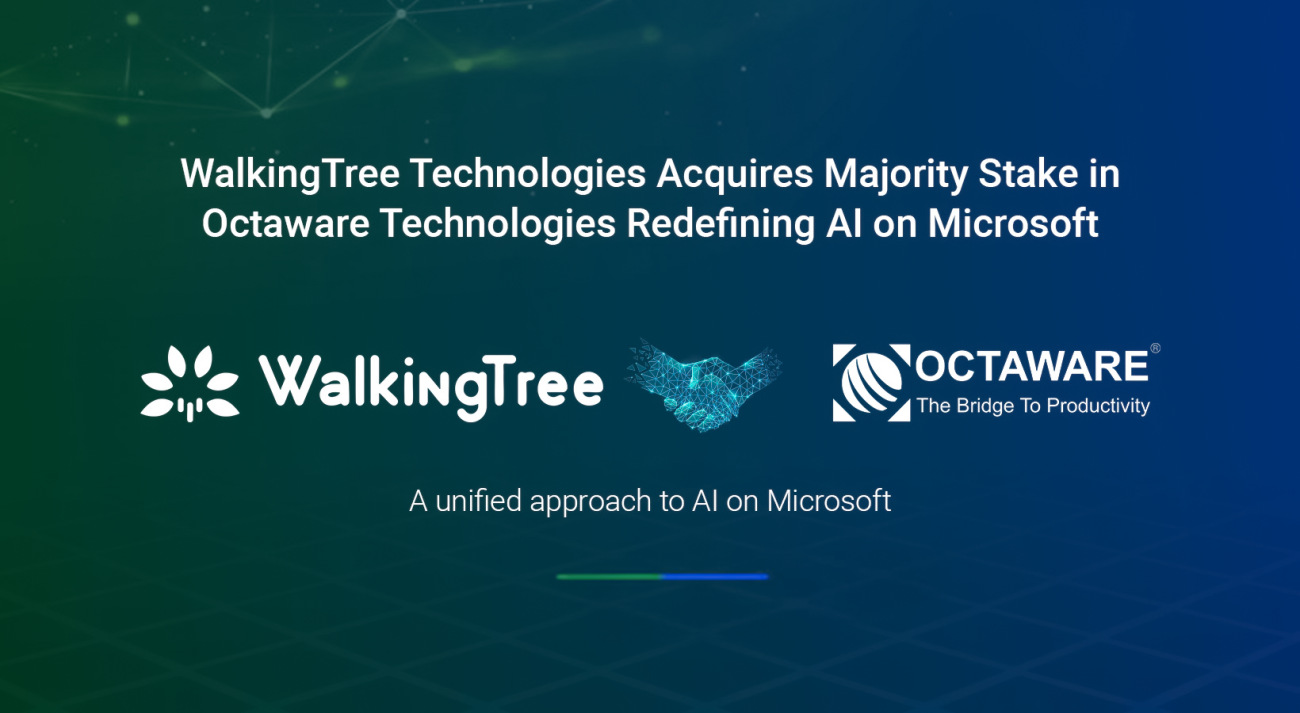
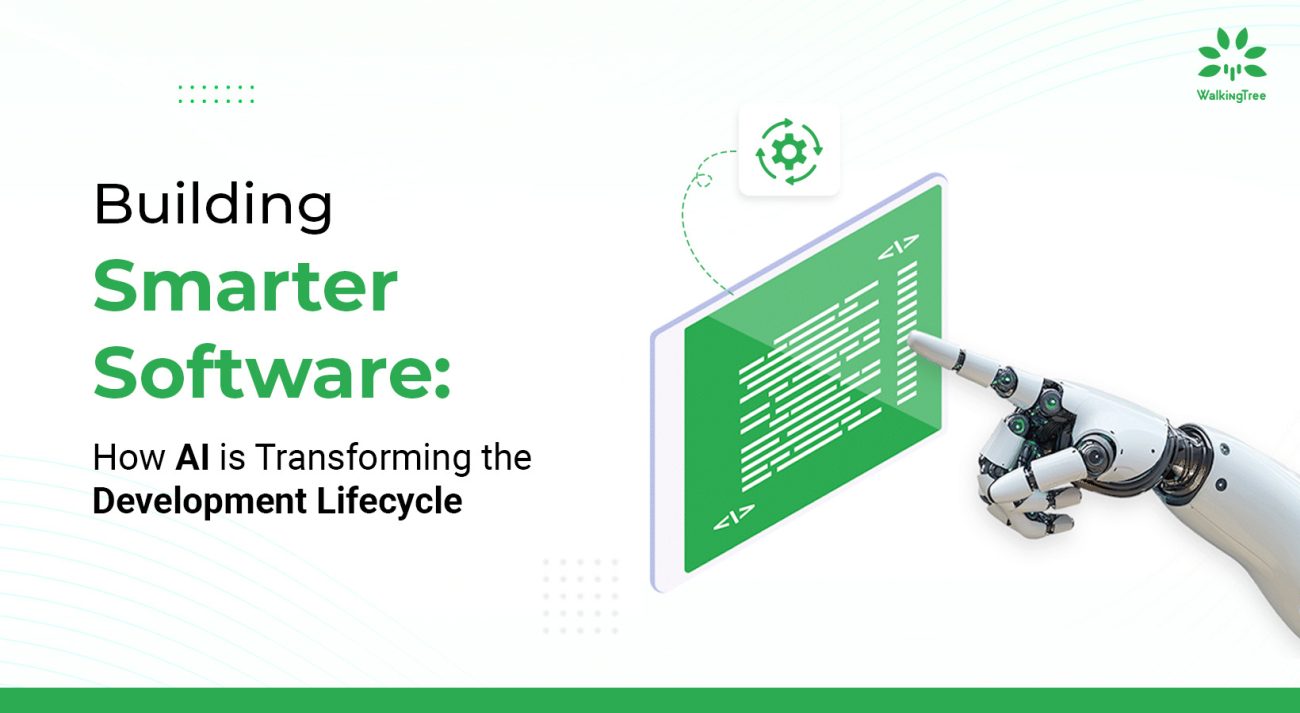
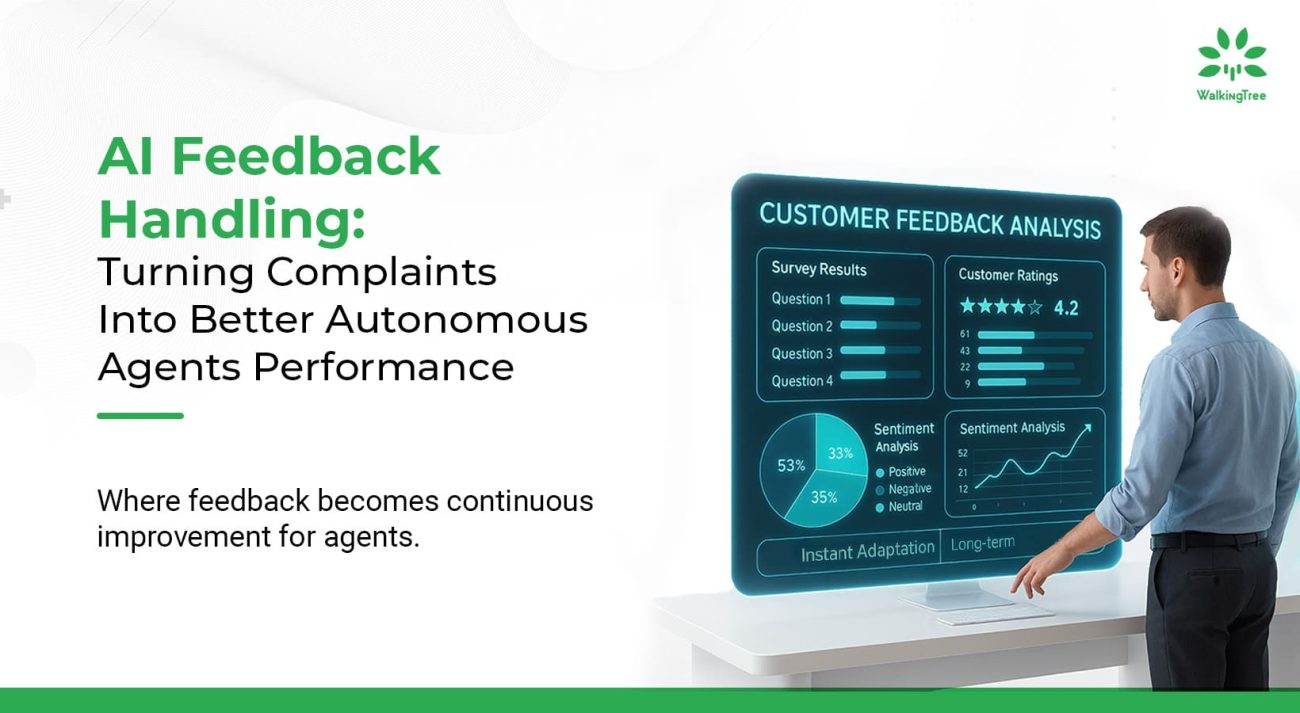
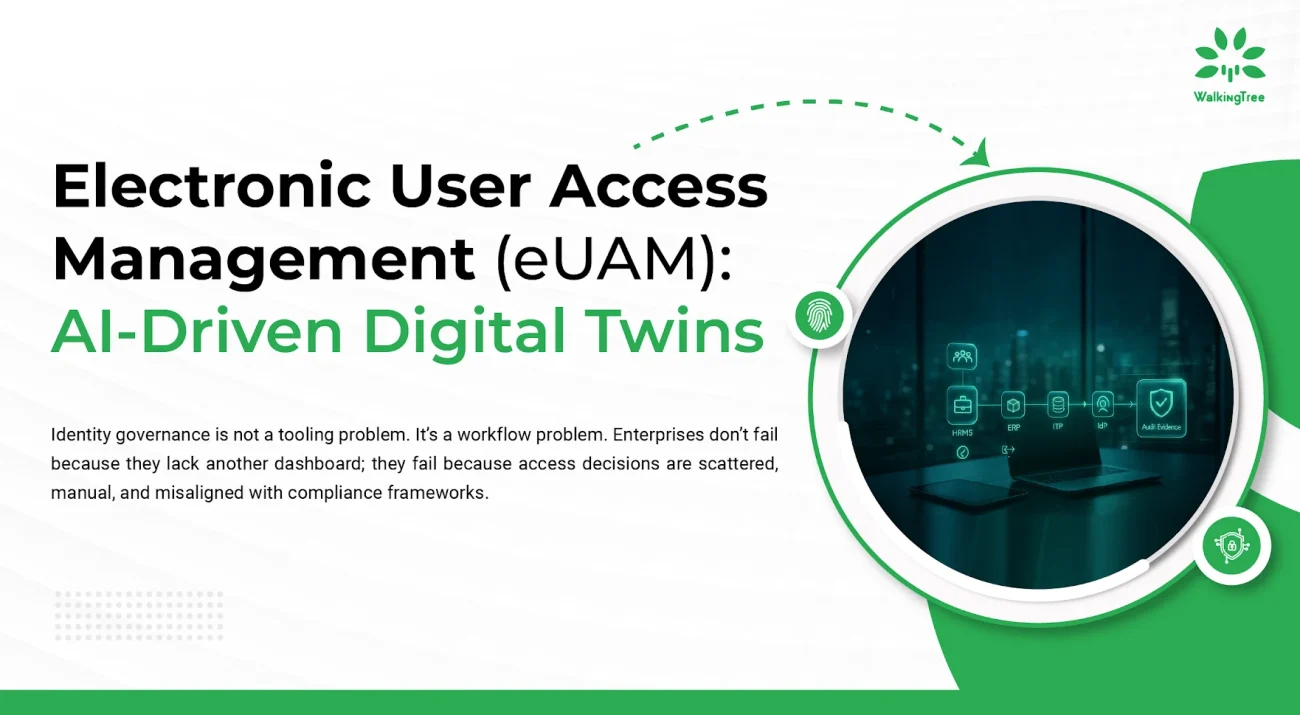
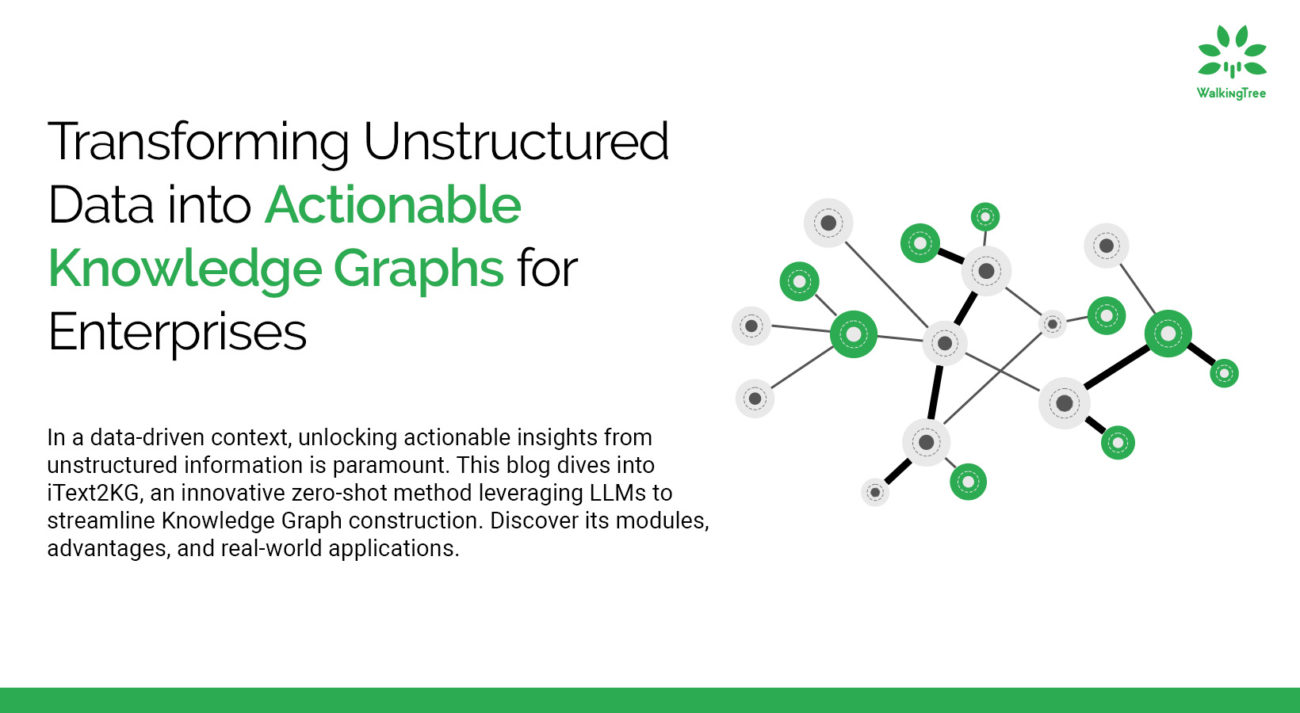

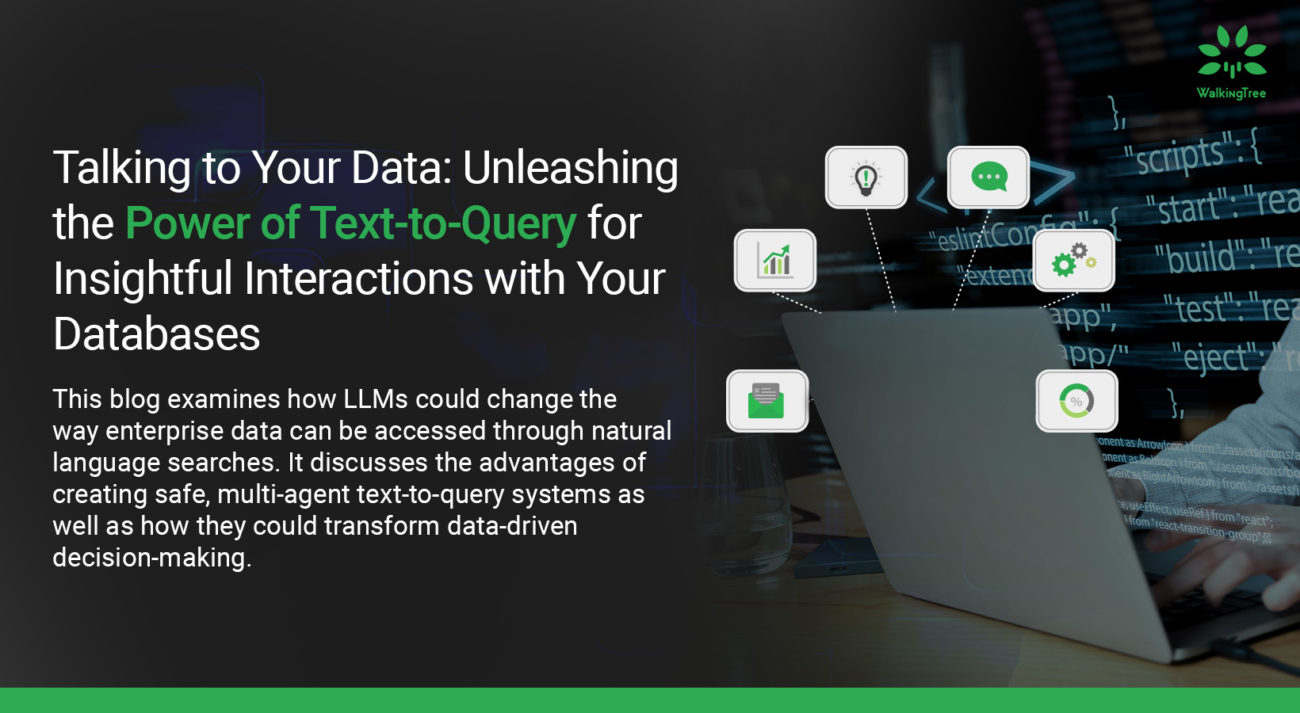
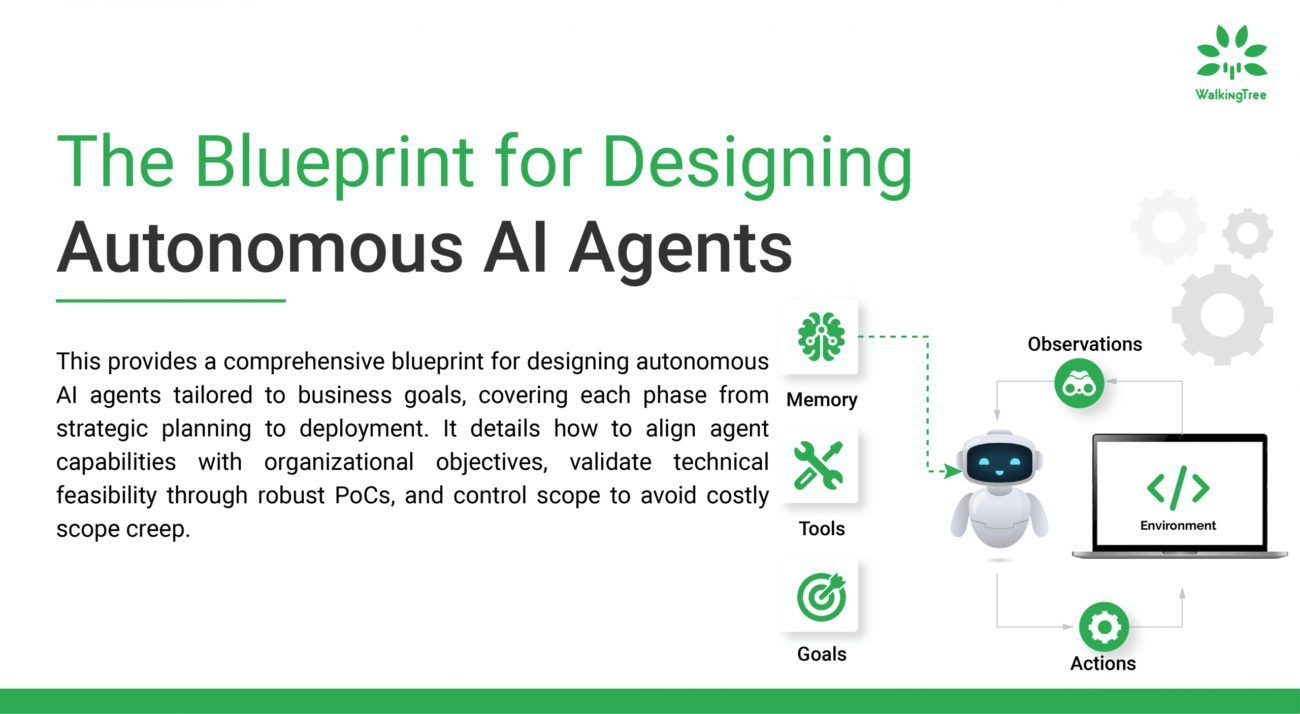
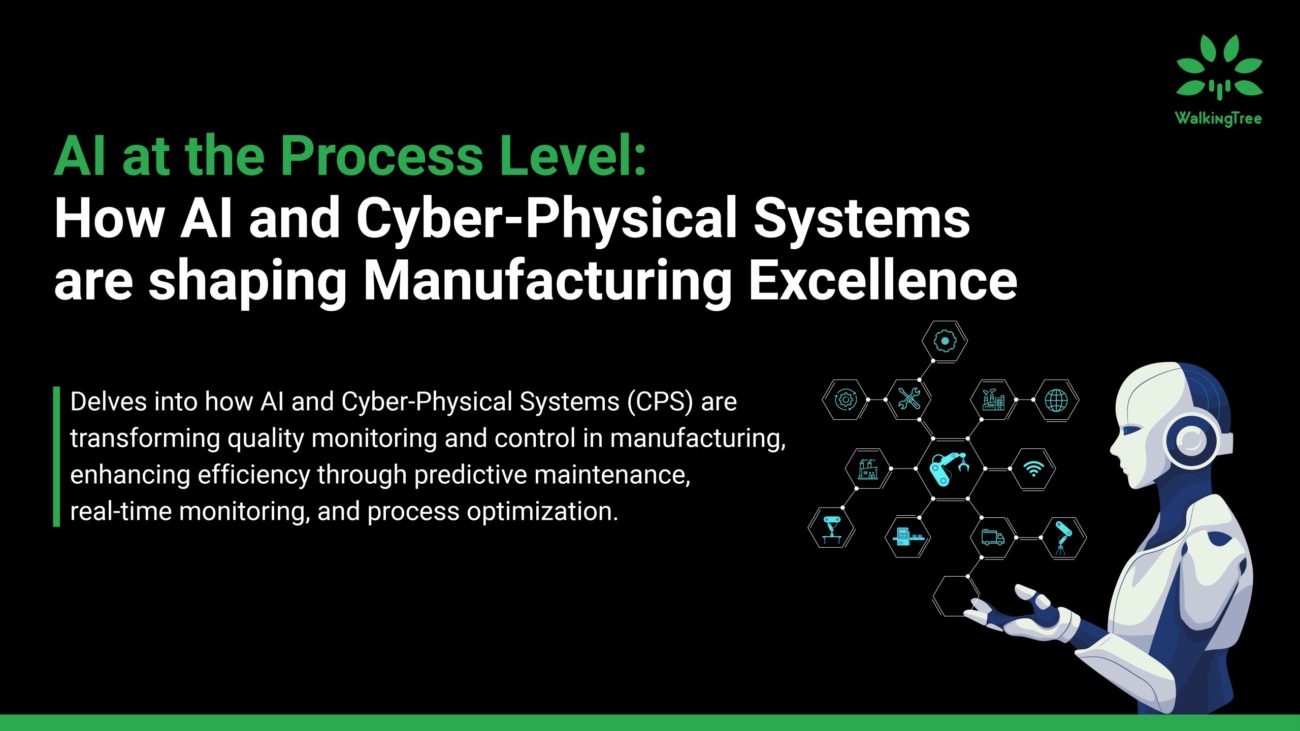
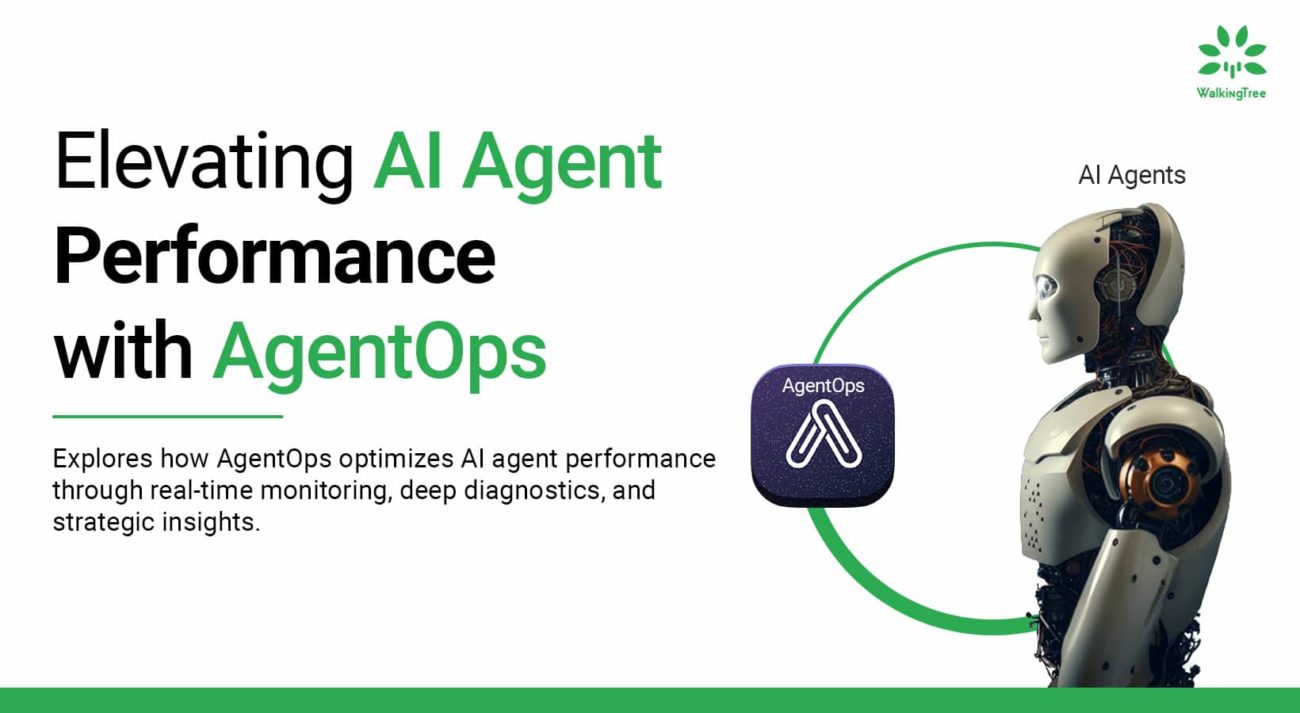


Wow, superb blog layout! How long have you been blogging for? you make blogging look easy. The overall look of your site is magnificent, as well as the content!